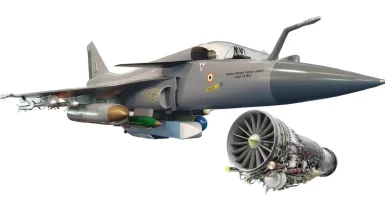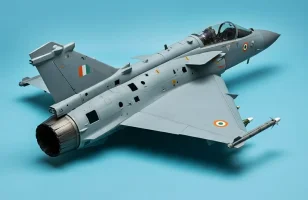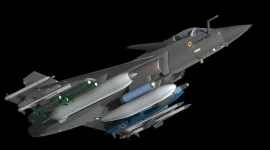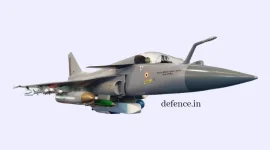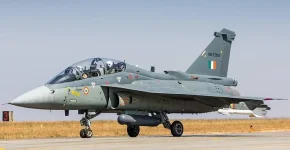- Views: 3K
- Replies: 15
In a landmark strategic shift aimed at accelerating the production of fighter aircraft, Hindustan Aeronautics Limited (HAL), the nation's leading aerospace and defence corporation, is set to outsource the complete assembly of major aircraft modules to private Indian companies.
This move is expected to dramatically reduce manufacturing timelines for the Tejas Mk1A and potentially Tejas Mk2 and AMCA.
Under the new model, private firms that already supply key structural components—such as the fuselage, wings, and tail sections—will now deliver these parts as fully equipped, pre-assembled modules.
This means the sections will arrive at HAL's final assembly line with all necessary internal systems, including wiring, hydraulic lines, and other sub-assemblies, already installed.
The initiative is designed to resolve production bottlenecks and significantly increase the delivery rate of aircraft to the Indian Air Force (IAF).
This enhanced collaboration deepens the existing relationship HAL has with established partners in the private defence sector.
Companies like Larsen & Toubro (L&T), which supplies the wings, VEM Technologies (centre fuselage), Dynamatic Technologies (front fuselage), Alpha Tocol Engineering Services (rear fuselage), and Tata Advanced Systems Limited (TASL) (vertical tail), will see their roles expand significantly.
They will transition from being suppliers of basic structures to providers of complex, integrated modules ready for final integration.
The new strategy aligns HAL’s manufacturing process with global aerospace giants like Boeing and Airbus, which have long relied on a modular assembly approach.
By receiving pre-equipped sections, HAL can concentrate its resources on the critical final stages of aircraft production: integrating the engine, avionics, and weapon systems, followed by comprehensive testing and certification.
This change is projected to enable HAL to potentially double its annual production of the Tejas Mk1A from the current 16 aircraft to a target of 30 by 2027, crucial for fulfilling the existing order of 83 jets for the IAF.
While this operational overhaul promises a major boost in production capacity, it involves a financial trade-off for the state-owned enterprise.
Historically, the in-house task of equipping these modules was a significant source of revenue for HAL. By outsourcing this high-value work, HAL's profit margins on each aircraft are expected to decrease.
This comes after the company’s margin on the Tejas Mk1A was already reduced from approximately 12% to 6% following rigorous negotiations with the IAF, highlighting the financial pressures involved in meeting the nation's security needs efficiently.

